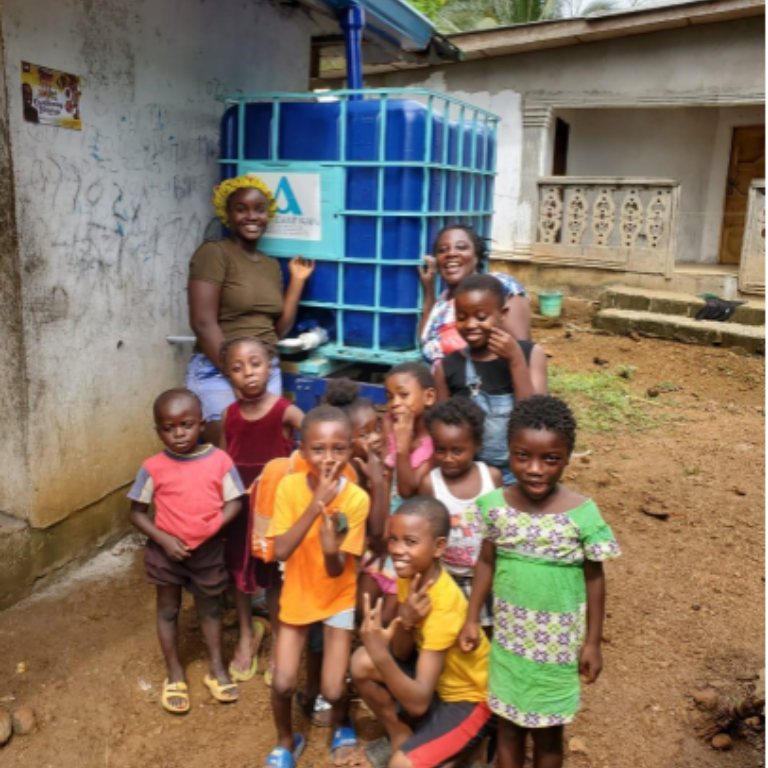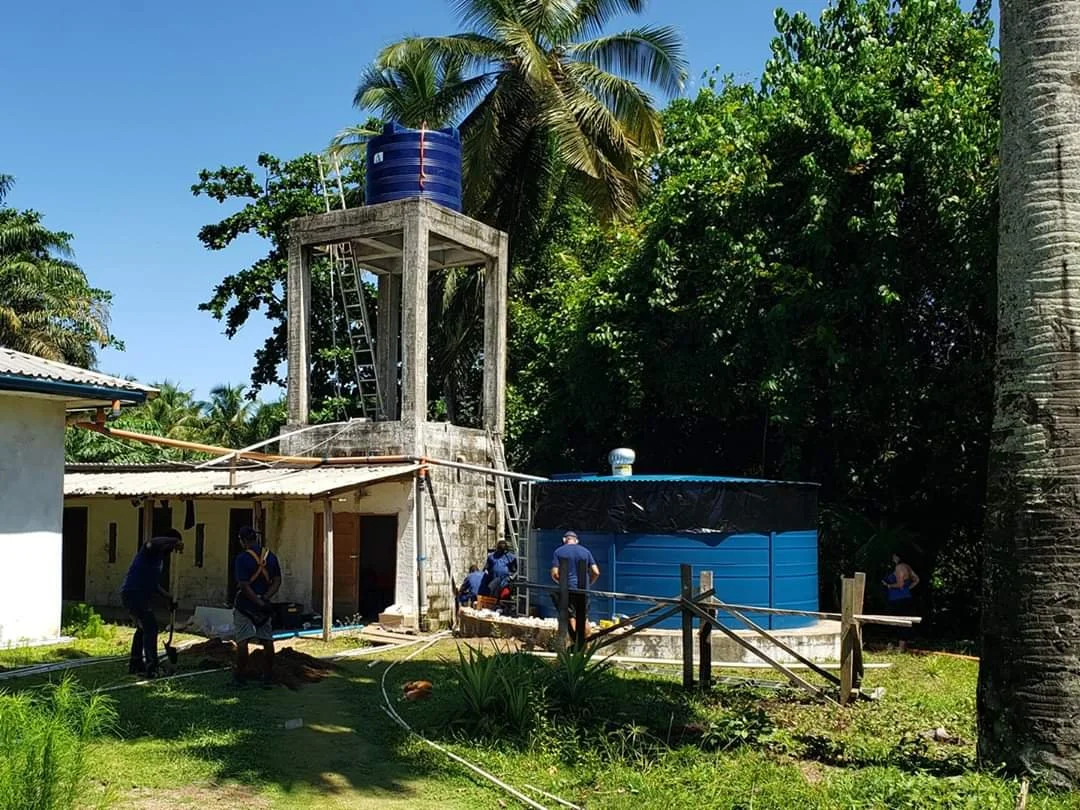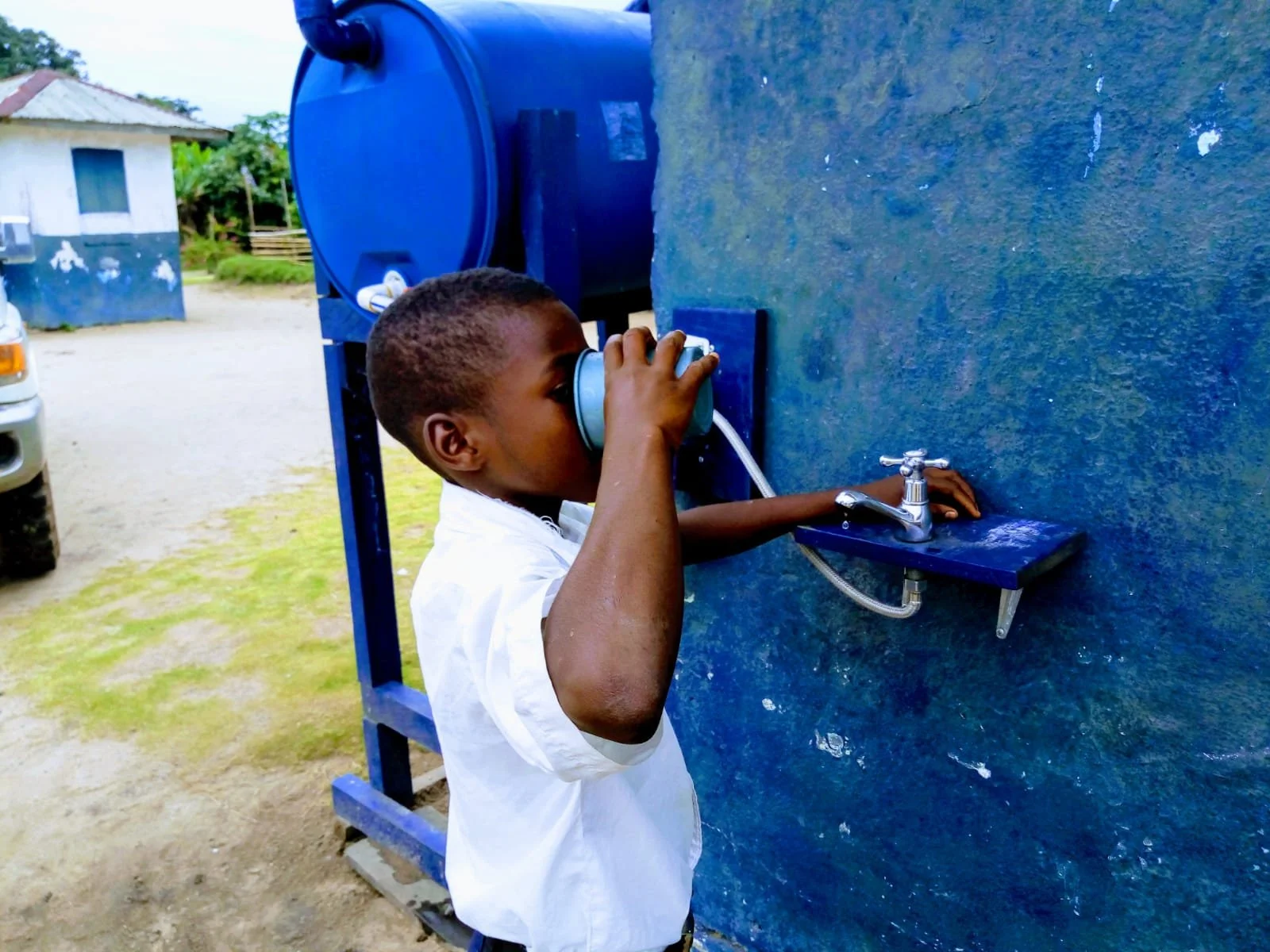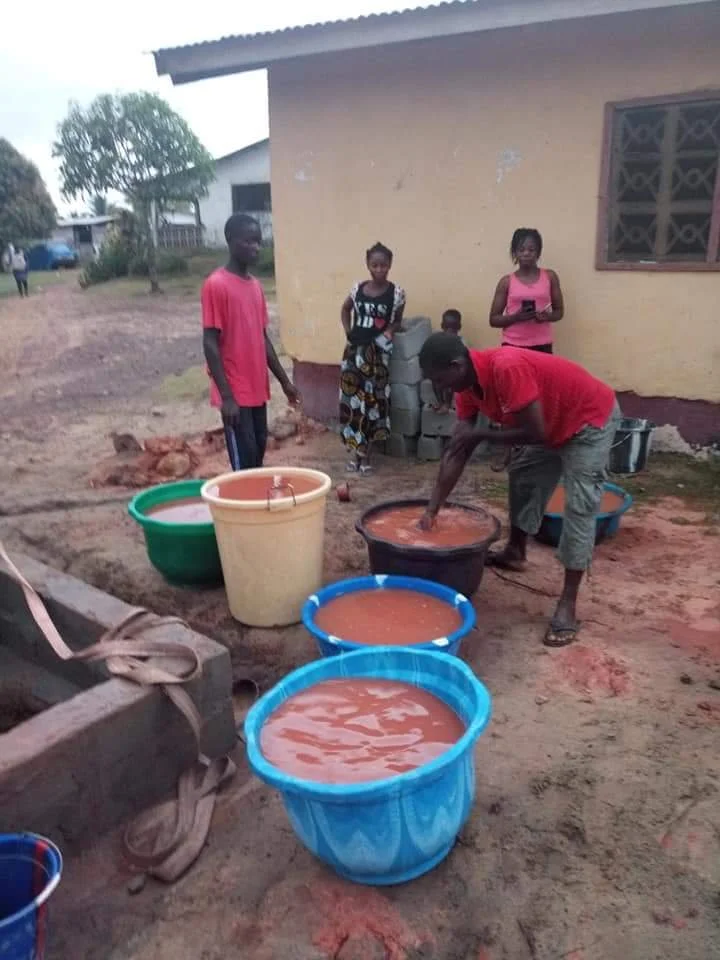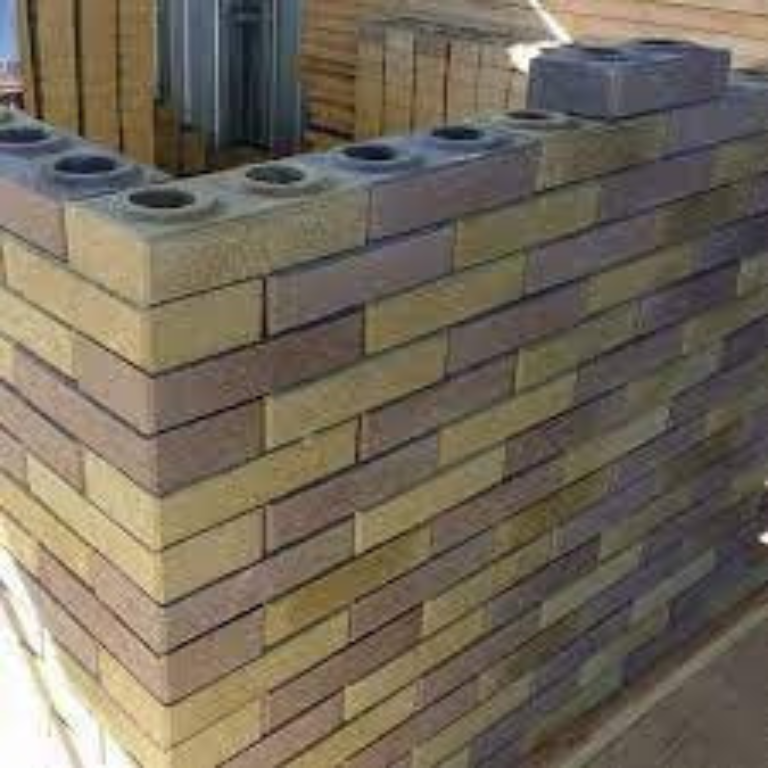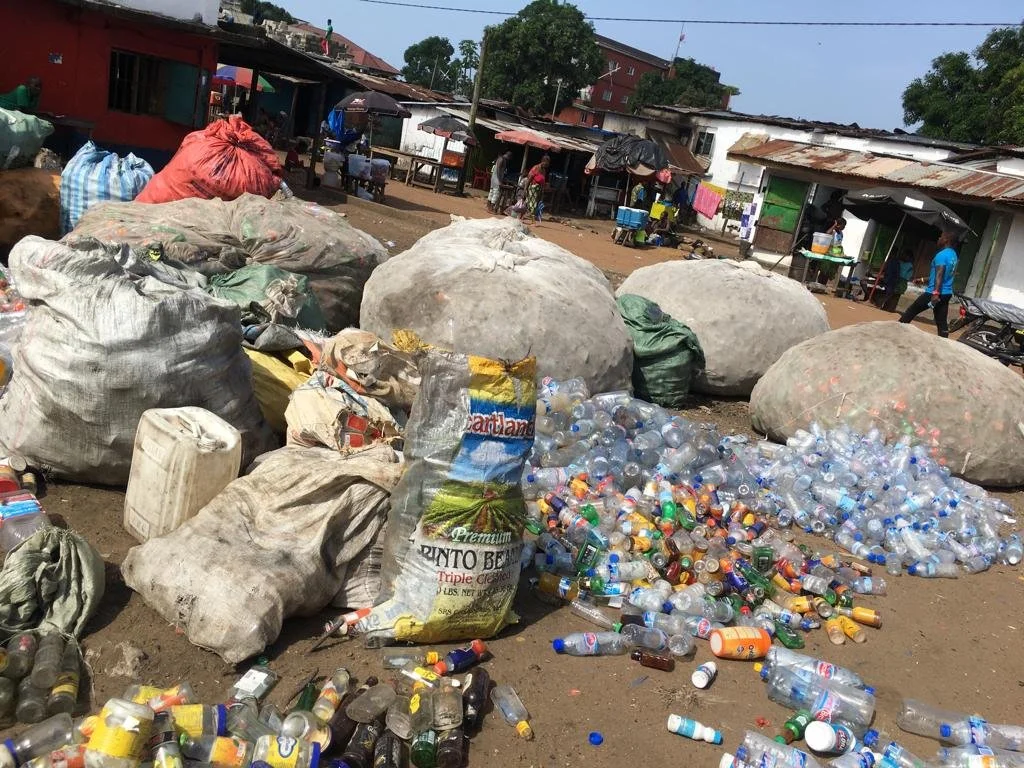Our Solutions
Clean Water
Plastic Recycling
Sanitation
Our clean water solutions
RAIN Rainwater Harvesting Systems
Abundant Rain began with the goal of delivering clean water to all Liberians. We developed rainwater harvesting systems in a variety of sizes and have adapted them for over 100 projects so far, including private residences, schools, hospitals, and our community RAIN + Recycling stations.
All RAIN systems include rooftop catchment, gutters, non-toxic cisterns, solar-powered filters, and indoor taps. They are built to last, with durable materials and easy-to-source replacement parts. Our first system, which served the first Abundant Rain office location, is still going strong after more than 10 years with only occasional rinsing and replacement of the filter candles.
A RAIN1000 system with plumbing to the indoor tap
RAIN1000 residential
Private access to safe, filtered water at an indoor tap
Enough clean water for a family of 10
11-step, solar-powered filter
Easy monthly maintenance
A RAIN40K system with 40,000 L cistern at the Po River Clinic
RAiN40K INSTITUTIONAL
Safe, filtered water at indoor taps for community facilities such as schools, clinics, or hospitals
Enough clean water for up to 500 students or patients per day
11-step, solar-powered filter
Weekly or monthly testing and maintenance services available
A boy drinking at a community rainwater harvesting station
community RAIN STATIONS
Provide safe, filtered water to an entire community
Enough clean water for up to 4,000 people
Exchangeable, sanitized containers make water collection fast and prevent cross-contamination
A family’s stores of contaminated well water
Benefits of Abundant RAIN systems
COMMUNITY HEALTH
Eliminate exposure to contaminated well water
Reduce death, suffering, caretaking burden, and economic impacts of waterborne illness
Mitigate the spread of epidemic and pandemic diseases at crowded or contaminated wells
SAFETY AND INCLUSION
Free up to 4 hours per day for women and girls to go to school or earn income instead of carrying water
Prevent gender-based violence en route to wells
Prevent conflicts in long, crowded well lineups
ECONOMIC AND CLIMATE RESILIENCE
Eliminate spending on plastic water sachets
Free up family finances for education and well-being
Increase income stability during climate events that contaminate wells (i.e. heavy rains and floods)
Our plastic solutions
RAIN + Recycling Stations
The Abundant RAIN + Recycling Station was originally designed to solve the affordability problem of rainwater harvesting. However, it soon grew to address the overwhelming problem of plastic waste in our most underserved communities.
We quickly discovered that the people who need our RAIN systems the most—impoverished Liberians living in informal communities—can least afford to purchase their own system.
In addition, we saw plastic trash overwhelming Liberia’s roads, clogging drainage systems, and accumulating in the wetlands. In talks with municipal and national governments, we learned that every effort so far to manage the waste has failed due to inadequate funding, inexperienced management, and a lack of transportation infrastructure.
Working together with private funders, design advisors, and fellow recyclers, we adapted our rainwater harvesting systems to create a plastic-for-water exchange program that works within the political, economic, and environmental realities of Liberia. We’re delivering clean water to our most vulnerable communities and engaging everyone to clean up the devastating accumulation of plastic waste.
Step 1. Trade plastic for water
A model shows the inner workings of the Abundant RAIN station
-
Community members trade recyclable plastic and glass for filtered rainwater.
Instead of filling family containers, water is collected in exchangeable containers called Water Bricks.
They are pre-filled and sanitized for a quick, efficient, and less risky process.
-
Filling containers is a slow process that causes long waits in crowded lineups and risks contaminating the shared taps.
With pre-sanitized and pre-filled containers, we can serve over 2x as many people each day.
Plus, there is no worry that clean water could become contaminated by using improperly cleaned containers.
-
Fast, clean container exchanges mean no long, crowded lineups to spread disease, cause conflict, or enable gender-based violence.
-
Recycling credits are managed on a simple gift card system called RAIN cards.
Families can deposit plastic when it’s convenient to earn credits on their card.
Then, they can use the card to collect water or use sanitation facilities when they need to.
RAIN cards are simple so that everyone can participate in RAIN station services, even if they can’t read or don’t own a smartphone.
-
A deep-bore well with filtration supplements rainwater supply, ensuring the community always has a safe, reliable source of water.
Step 2. Turn plastic into bricks
-
Some of the plastic collected at the station is used to produce R BLOKS.
These hollow concrete bricks are made using 20 plastic bottles, 20 glass bottles, and 20 plastic sachets each.
-
R BLOKS are used to build the walls and waterproof cistern of every RAIN station.
It takes over 6,000 R BLOKS to build each station.
That means every new station consumes more than:
120,000 glass bottles
120,000 plastic bottles
120,000 plastic sachets
-
R BLOKS are lighter, stronger, and more durable than traditional concrete blocks.
They are precision-cast to interlock tightly, meaning you can build with them without mortar.
An entire structure can be built in one session, with no waiting for mortar to cure.
-
R BLOKS have horizontal channels and vertical holes that can be aligned to create built-in conduit.
Instead of having to dig out channels to install electrical and plumbing after the walls are built, the wires and pipes can be installed during the wall construction.
-
Our construction experts estimate that using R BLOKS, a trained team could build a 1,000 square foot, 2-bedroom house in 1 month, instead of 6-9 months.
An R BLOKS wall—stable, level, and assembled without mortar
Step 3. Scale a plastic upcycling economy
Sorted recycling to be turned into R BLOKS and other products
-
Community recyclers, like Ever Green Recycling Institute, sign commitments to purchase shredded plastic stock from RAIN stations.
-
With guaranteed outflow to our recycling partners, each station can accept 5x more plastic from the community.
As our communities begin bringing more plastic trash, we develop more partnerships to maximize the capacity of the network.
-
We hire and train local residents to staff RAIN stations.
We also connect with neighborhood entrepreneurs who collect plastic in our streets and waterways.
In our collaborations with government and NGOs, we advocate for them to source upcycled materials from our recycler network.
RAIN stations become hubs that drive a thriving and locally-empowered plastic upcycling economy.
Community children celebrating another RAIN station
ENGAGING THE COMMUNITY TO CHANGE BEHAVIOR
Community outreach is crucial to our programs. Our team spends months spreading awareness about our stations, learning about the neighborhood’s unique needs and addressing residents’ objections about changing their ways of collecting water and disposing of waste.
We hire and train local residents to operate our stations and recruit community chairs and individual families to help us demonstrate the benefits of trading plastic for water.
Education and social proof drive behavior change and establish a lasting culture to sustain the plastic-for-water and community sanitation solution.
MINIMIZING OUR ENVIRONMENTAL FOOTPRINT
RAIN + Recycling stations are self-sufficient, with their own solar power panels and minimal electrical needs (i.e. LED overhead lighting and outlets to charge the tablets that run the RAIN card system.)
Plastic-sourced gasoline from Ever Green Recycling Institute fuels our plastic shredding machine, which uses less than 2 gallons per day.
Over 6,000 R BLOKS are used to build each station’s walls and rainwater cisterns, consuming an impressive amount of recycled material. Each location transforms 120,000 plastic bottles, 120,000 glass bottles, and 120,000 plastic sachets into durable community infrastructure.
R BLOKS are produced without sand, using precision-ground glass and hard plastics instead. This maximizes our consumption of waste and avoids the problems caused by sand mining.
Our staff toilet and public toilets use a sealed biodigester to prevent septic leakage during floods.
Our plastic shredder is fueled by upcycled gasoline
Our sanitation solutions
RAIN Recycling + Sanitation Stations
Sealed sanitation is the key to reducing deaths from diarrhea, cholera, and Ebola.
bringing sanitation to the slums
Abundant RAIN Recycling + Sanitation Stations are the complete solution to provide clean water, sanitation, and plastic waste management to impoverished informal communities.
Our sanitation module includes toilets and showers with private stalls, and it can either be built into a new RAIN + Recycling Station or added to an existing station later on.
Using the RAIN card credit system, community members can trade plastic deposits for water and access clean toilets and showers.
A sealed biodigester septic tank prevents raw sewage from being washed into the soil and groundwater during floods.
Staff monitoring and cleaning, plus the accountability of RAIN card sign-in keeps the station safe and appealing so people don’t go back to defecating in the bush.
Women and girls finally have a safe place to use the toilet and wash.
Diarrhea, cholera, Ebola, and other diseases become easier to control.

